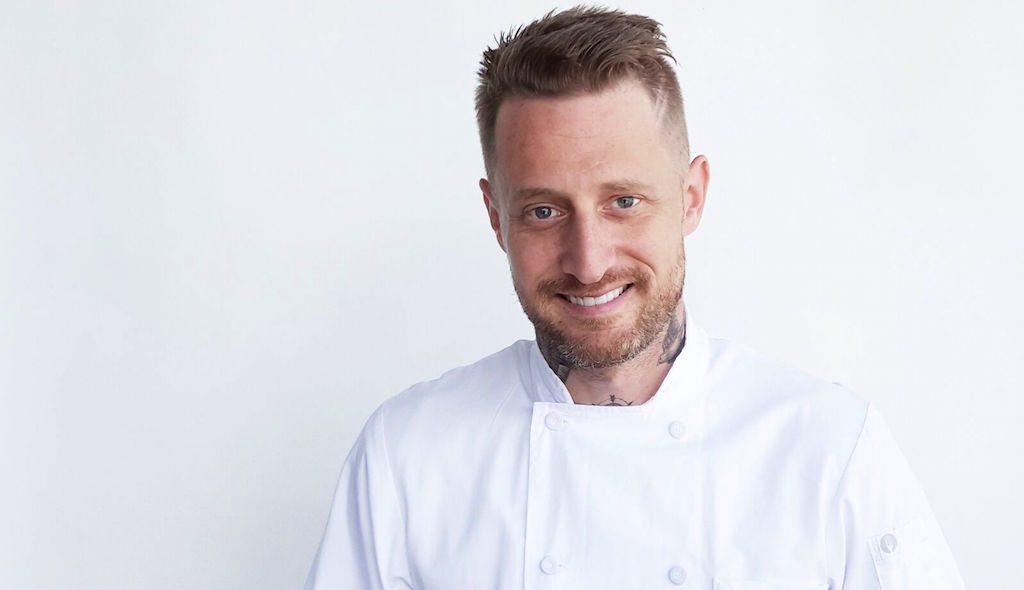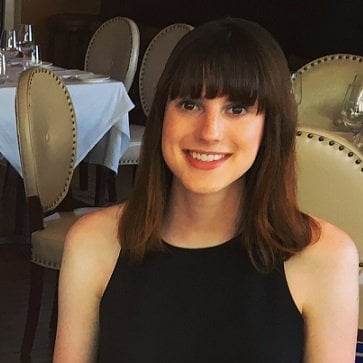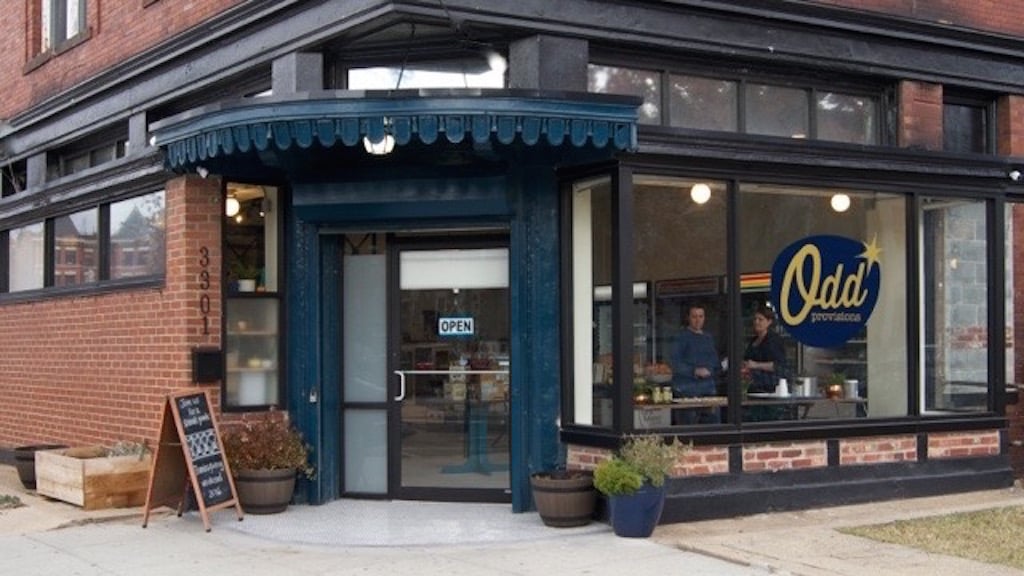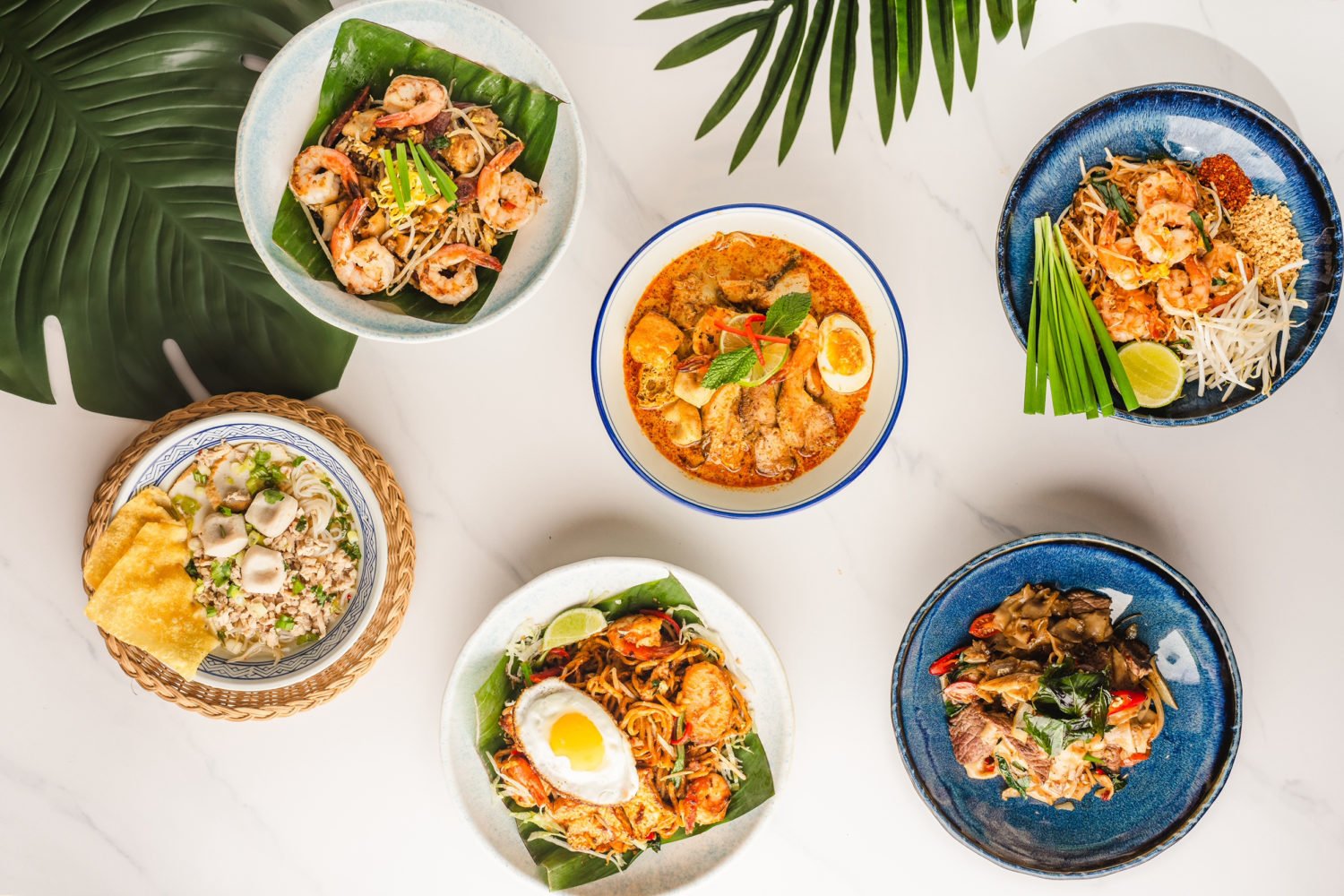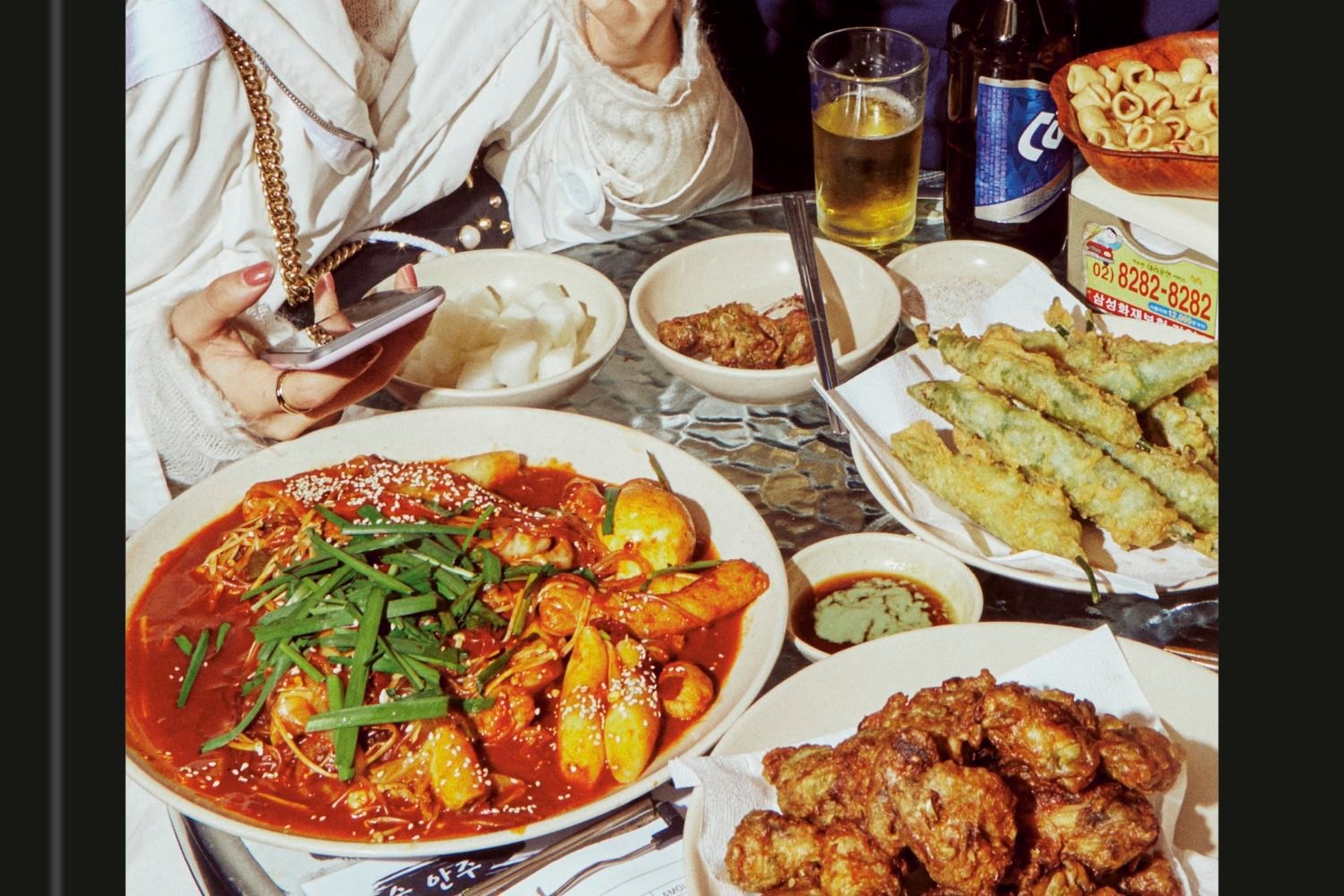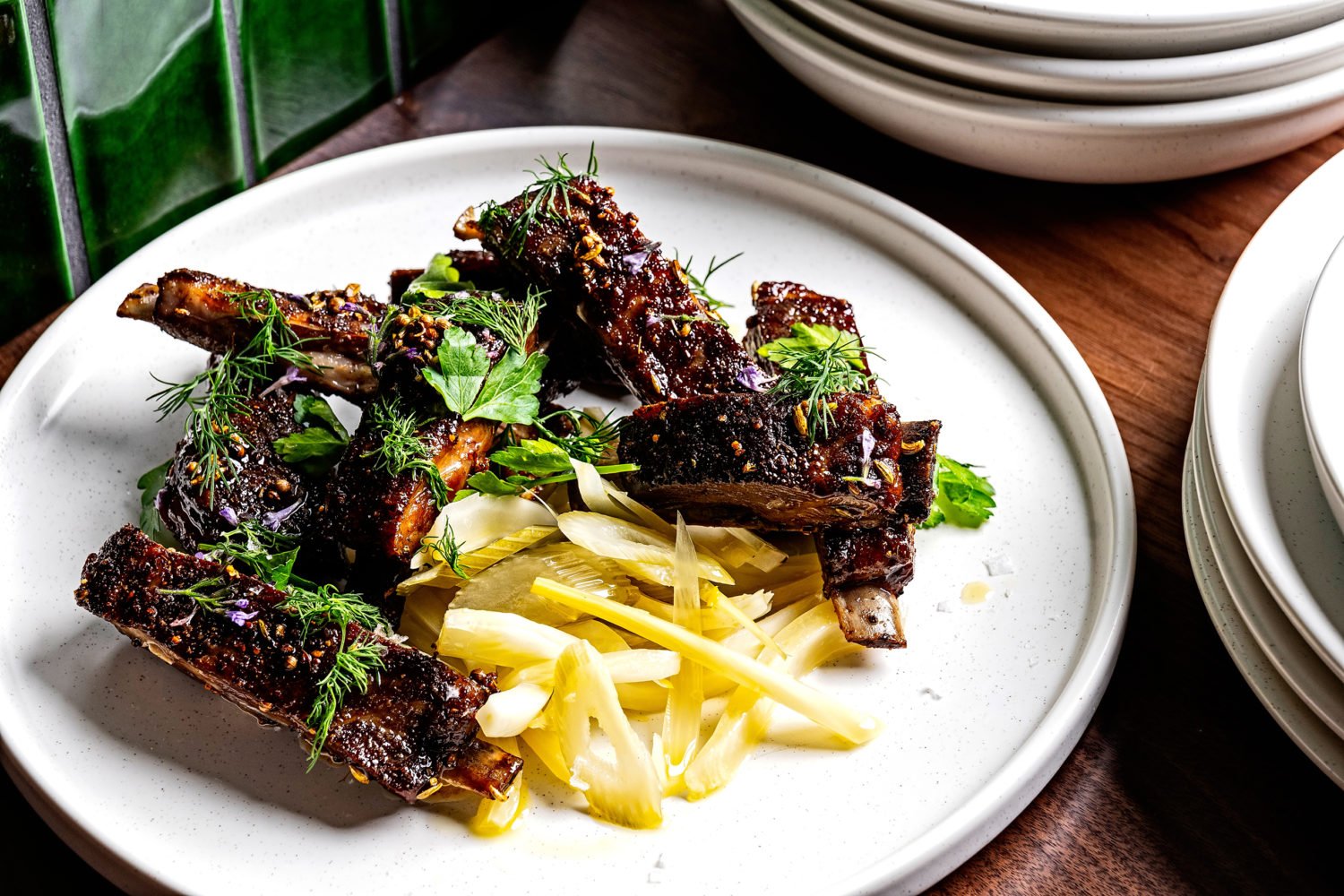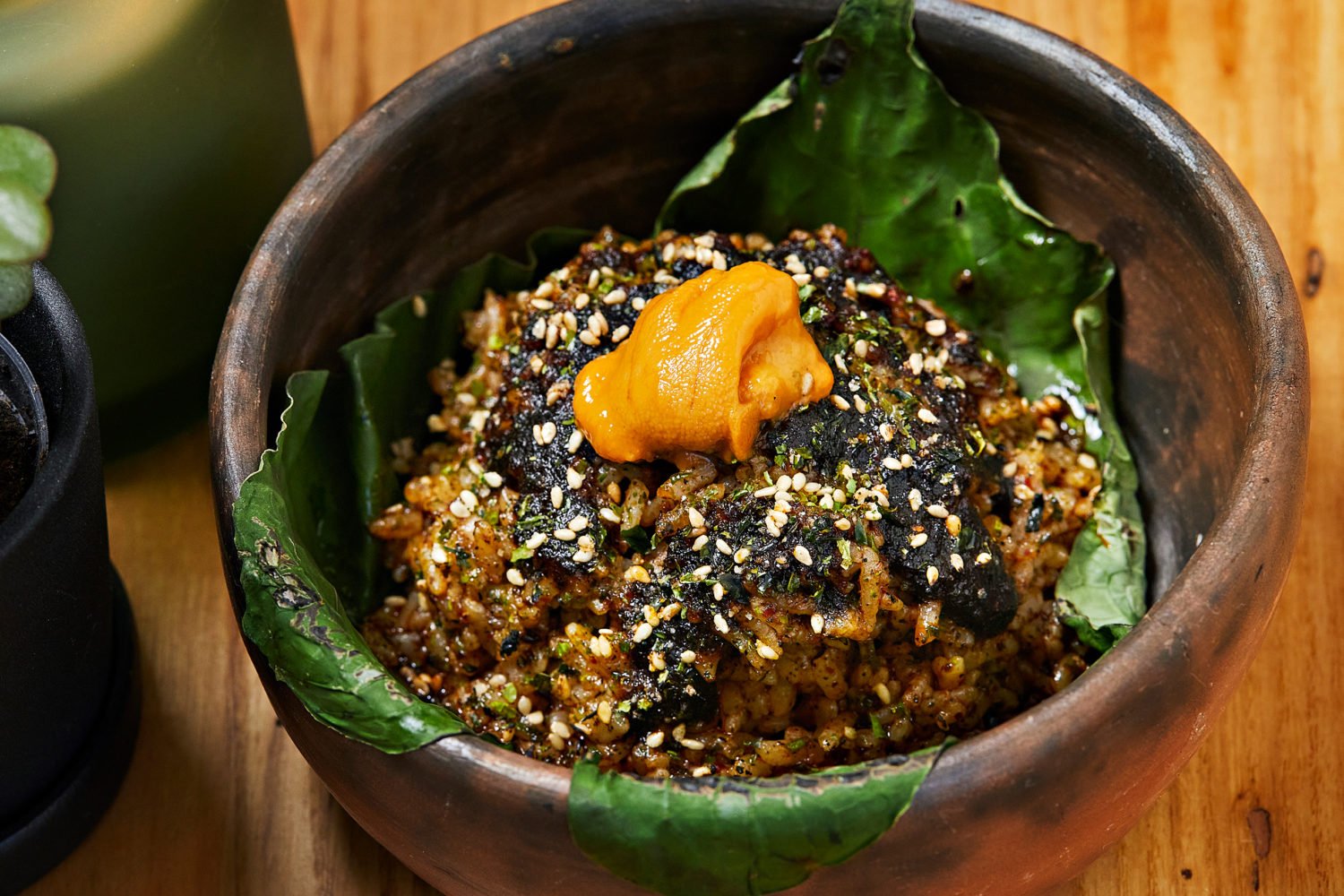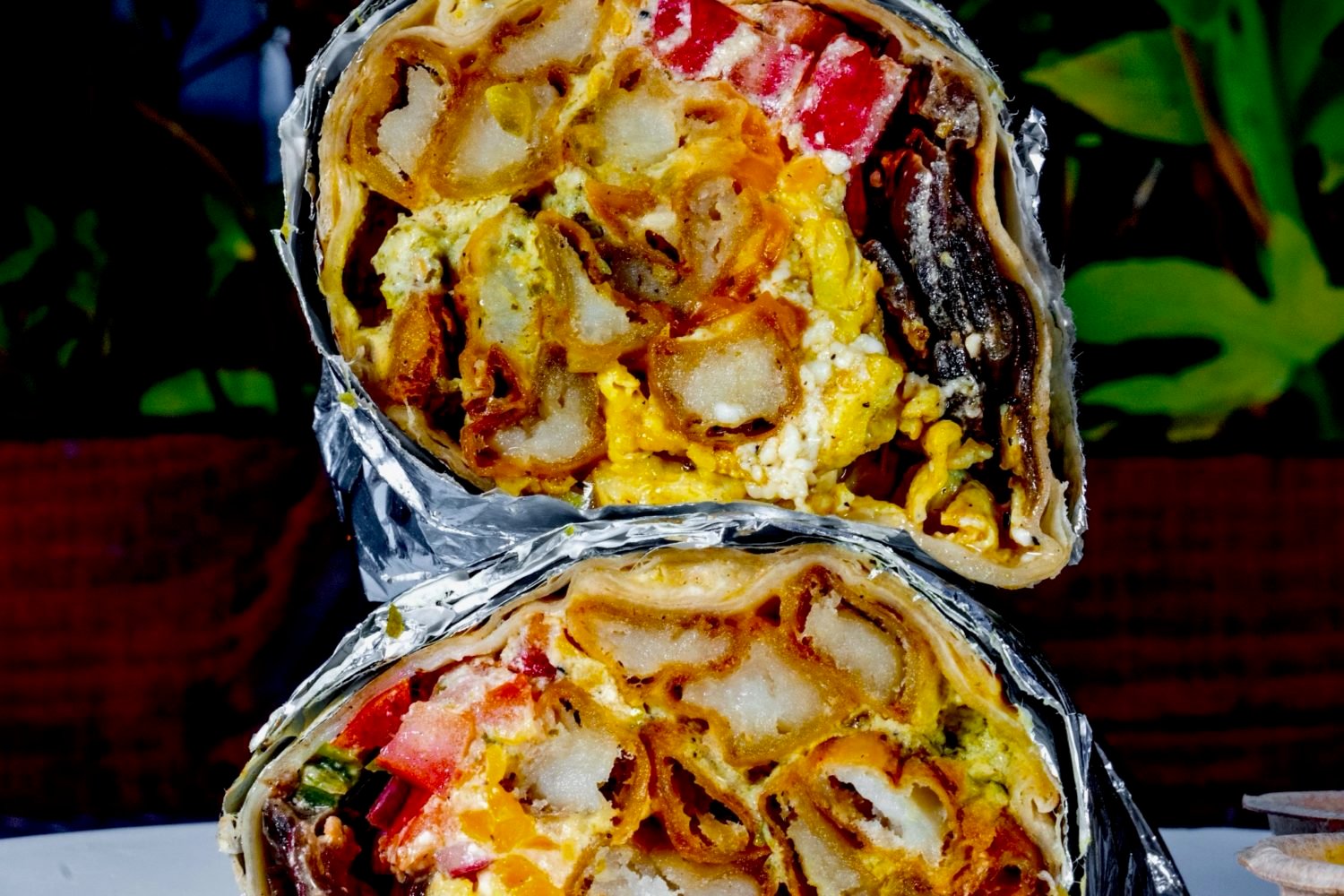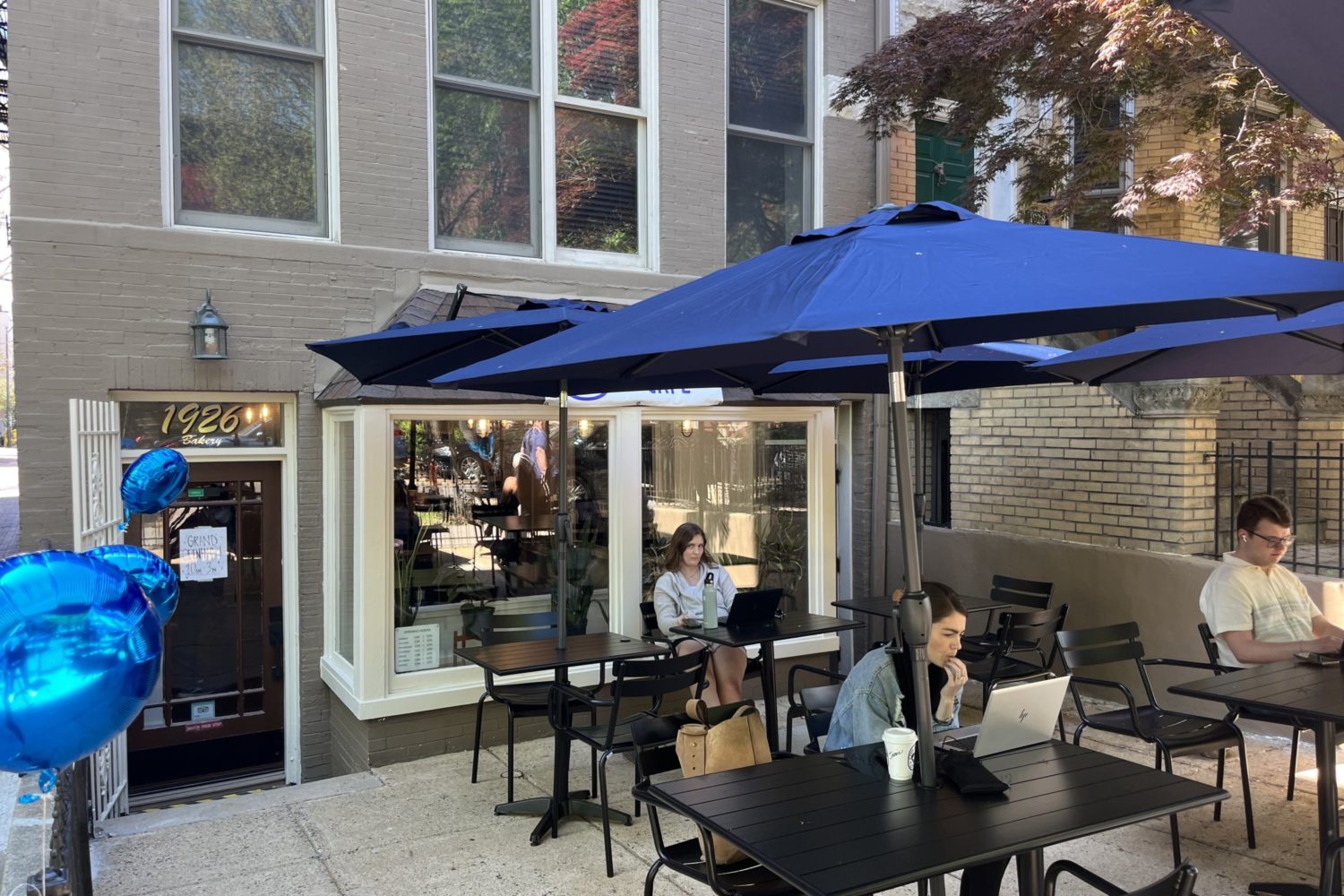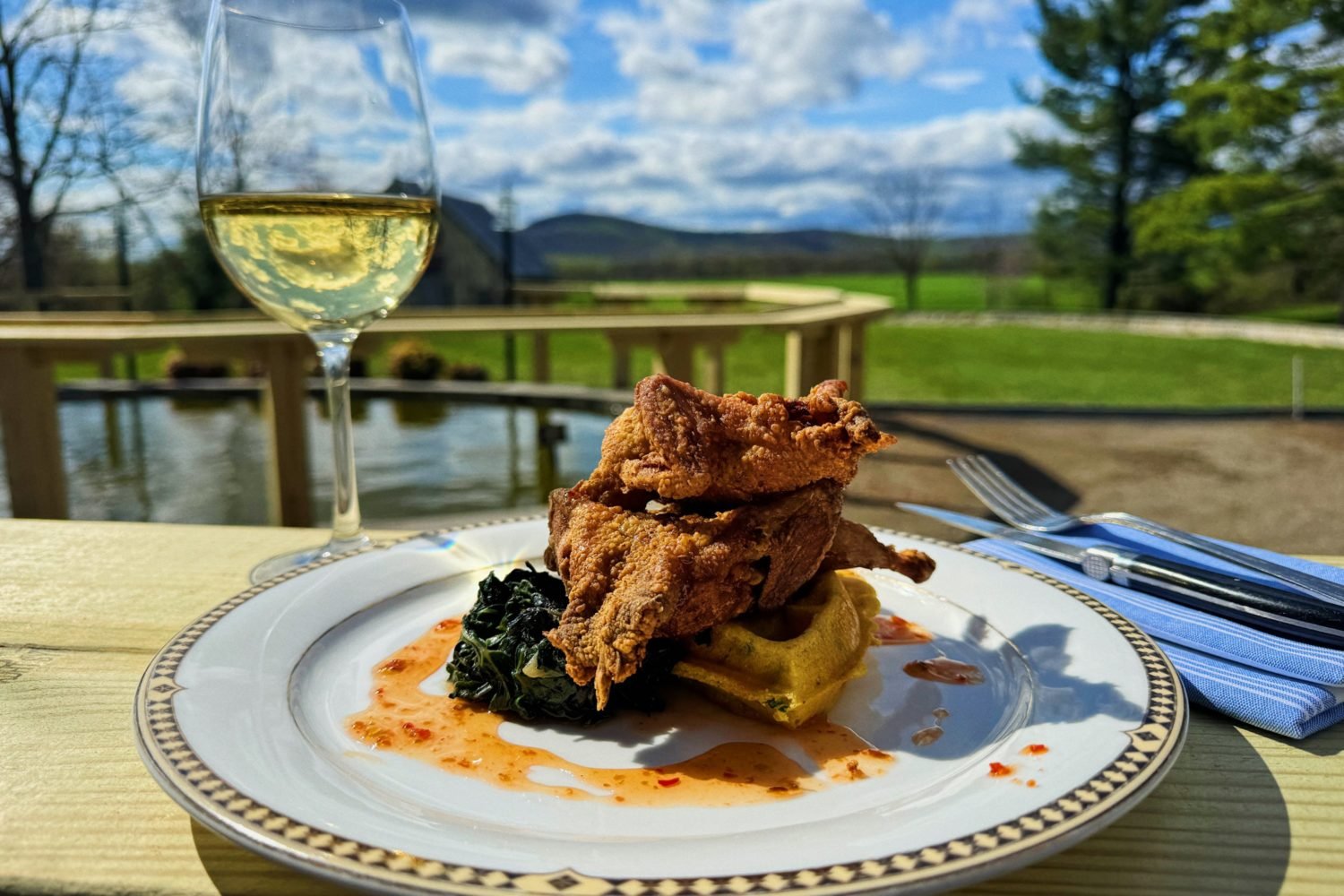Los Angeles-based celebrity chef Michael Voltaggio doesn’t cook in the DC area often. But when former boss José Andrés called about participating in Capital Food Fight, Voltaggio couldn’t refuse.
“When he calls me, I just say, ‘Yes, chef.’ It’s out of habit,” says Voltaggio, who worked at The Bazaar by Andrés before opening Ink. in LA. “I hope I can break it one day. But as of right now, when he tells me to do something, I do it.”
On November 10, Voltaggio will join Andrés as a judge at Capital Food Fight, one of the biggest food events in DC’s culinary calendar and a huge fundraiser for DC Central Kitchen. In a more permanent move, the Frederick, Maryland native is joining forces with brother Bryan Voltaggio to open a steakhouse in the MGM National Harbor casino alongside eateries from Andrés, Marcus Samuelsson, and others.
Washingtonian sat down with Voltaggio to discuss his involvement in Capital Food Fight, his vision for the new restaurant, and the significance of coming home after eight years on the West Coast.
What is it like coming back to cook in the DC area?
“I’m a little nervous, just because Bryan’s been there holding down the fort for the past eight years. When you say ‘Voltaggio’ in DC and Maryland, you’re talking about Bryan. But I think that after Bryan and I have gone in our different directions, we’re going to be a lot stronger coming closer together and doing more projects. And I think it makes the most sense that our reunion is happening in our hometown.”
You competed against Bryan on Top Chef. What is it like collaborating with him to open a restaurant? Is there any sibling rivalry?
“Bryan and I are not competitive with each other now. We’re definitely each other’s biggest supporters. I know that sounds cliche and scripted. Bryan and I talk every single day about work. It’s nice to have somebody like that, who you can communicate with on a personal level. At the end of the day, we’re here to support each other because we’re family.”
What will the division of labor look like in terms of menu planning?
“Bryan is there, so it’s a lot easier for him to be more accessible to the property itself. That being said, my chef of over 10 years, Cole Dickinson, is going to be the executive chef of that restaurant. So I definitely have a presence in the restaurant every day. As far as menu development is concerned, I’d say it’s split right down the middle. Every single dish has been collaborative. It’s not like we’re just phoning in a menu. We’re approaching this as if we’re opening a restaurant as a team.”
Washington already has several steakhouses. What will make yours stand out?
“We’re really trying to deliver an experience that is very family-oriented. It’s about the food hitting the middle of the table and people passing it around, as if they’re doing it at their house. So the design of the restaurant speaks to that. It looks like a house. There’s a living room, dining room, and kitchen area. We’re going to put these little carving sets in the middle of the table. Hopefully somebody will see the carver and stand up and say, ‘Let me cut the steak tonight.’ We really want this to be an engaged experience, where the guest is part of the service of the food, much like at a holiday. It’s bringing back that ritual of sitting around a table, sharing a meal together, and it not being about your cellphone but about the company you’re with. I feel like that’s a dying ritual.”
What do you think of the DC dining scene?
“For me, DC has the maturity that New York City has in the sense that it’s more about the discipline, the tradition, the ritual of providing a good dining experience as opposed to just doing something trendy. I think DC sort of stood back and watched what happened around the country, and then came back and said, ‘We’re going to be a serious food town. We’ve always been a serious food town.’ If you think back to the Jean-Louis Palladin days, when Red Sage and all of those restaurants were there, DC has always just been a food city. All of the pop-up, fast-casual restaurants are always going to be there, and those are definitely necessary. But the fine dining in DC is something I’m really excited about.”

